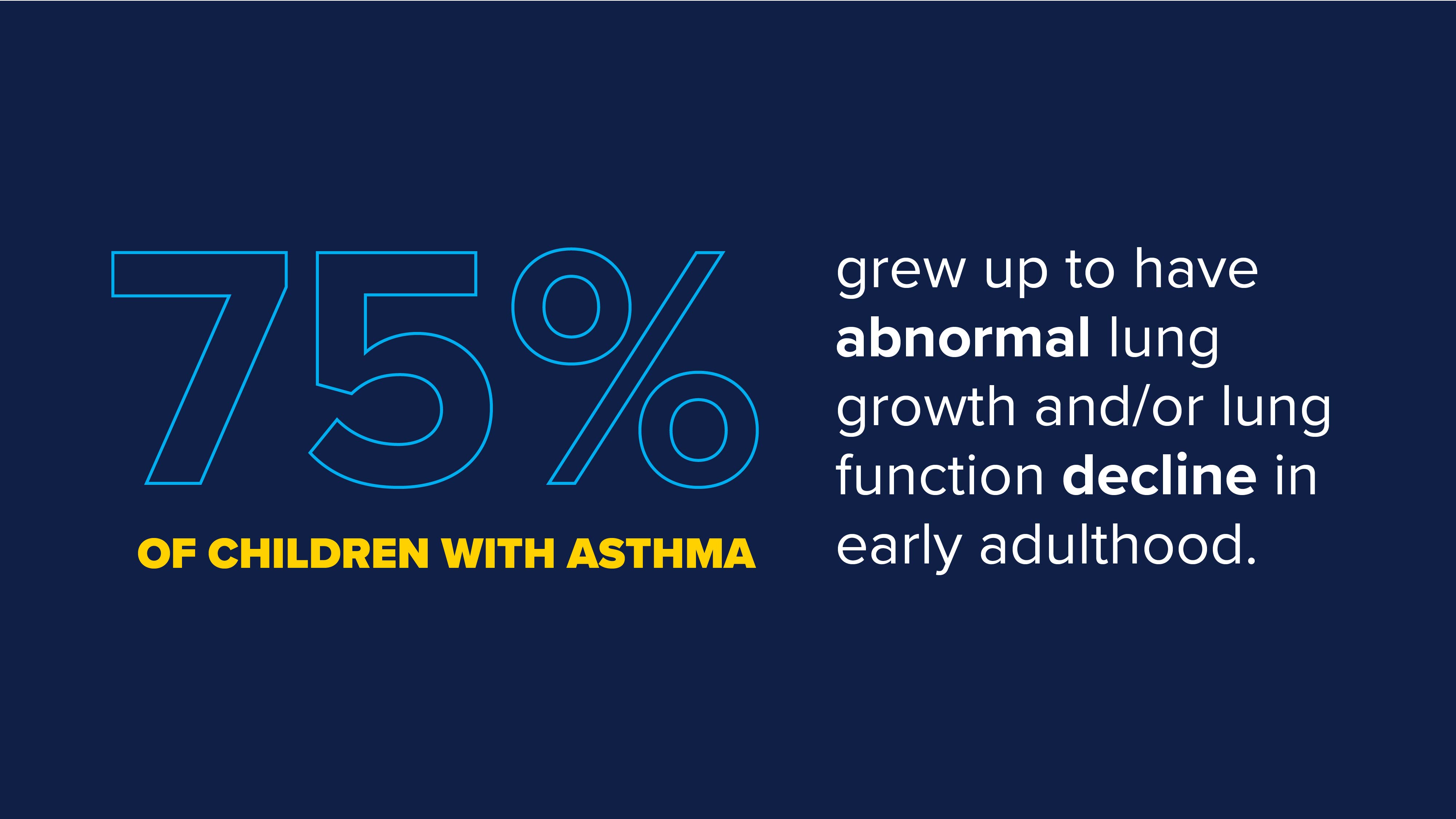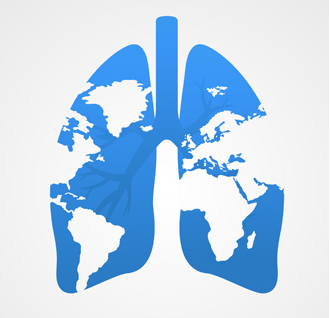

Each year, September 25 marks World Lung Day – an opportunity to foster critical conversations about your condition, your control of it, and the long-term impacts on your lung health.
What Is Control?
While some may assume their condition is managed, the reality is that many have simply learned to settle for living with inconveniences that uncontrolled respiratory diseases can cause. One individual who did just that is Lynn. Lynn is a lifelong world traveler whose asthma had become a part of her daily routine. Despite using her inhaler every morning, carrying her rescue inhaler everywhere she went and receiving regular injections to help manage her disease, wheezing and coughing continued to restrict her everyday activities, such as exercising.
It wasn’t until a visit to her respirologist’s office that she learned that her persistent symptoms were the result of “uncontrolled” asthma.
“I had never heard that term before, and I had certainly never heard it pertaining to myself," Lynn recalled. "I was desperate. What do we do at that point? If it's not controlled, does it mean it can never be controlled? I was very concerned.”
The Signs of Uncontrolled Asthma
Before her doctor’s visit, Lynn was not aware of the signs of uncontrolled asthma – using a rescue inhaler more than twice a week, experiencing wheezing and chest tightness more than twice a week, having sleep disruption due to asthma symptoms more than once a week or having two or more asthma attacks that require a steroid pill.1
Despite the lack of a cure for asthma, Lynn, was determined to achieve control of the disease through effective management with the guidance from her doctor and a suitable treatment plan.
Like Lynn, many adults who live with chronic respiratory diseases do not know the impact that their disease can have if left uncontrolled. Over time, these conditions can significantly impair lung function and negatively impact quality of life.2
This can be especially prevalent in children, with more than a third of children experiencing uncontrolled asthma, and of those more than half take long-term controller medications.3 Children with uncontrolled asthma may have difficulty attending school regularly, sleeping through the night and participating in extracurricular activities – particularly sports and other outdoor physical activities which also brings a burden to caregivers.4-5
Lung function decline caused by uncontrolled asthma attacks can make breathing harder, lead to additional asthma attacks and hospitalizations and have long term impacts for lung development. In a study that evaluated lung health in children as they grew up, 75% of 5–12-year-olds with asthma experienced abnormal lung growth and/or lung function decline during early adulthood.6-7

What Could Be Hiding Beneath The Surface
When recognizing the impact of uncontrolled respiratory diseases, it’s important to evaluate the potential root causes – and a specific type of inflammation could be to blame. Underlying type 2 inflammation can contribute to uncontrolled, persistent symptoms in people with chronic respiratory diseases, and can further impair lung function and worsen your quality of life if left untreated.2,4, 8-9
Up to 85% of people with asthma alone may have underlying type 2 inflammation, which can put them at risk for more asthma attacks.10-11
Partnering with a healthcare professional to understand the underlying biology of respiratory diseases can be important to reduce the burden of these conditions and gain control. Research into these drivers could help the development of innovative treatment approaches to potentially reduce disease burden, improve patient well-being and optimize outcomes, like breathing well.
To learn more about lung health, visit firsnet.org. You can also learn more about Lynn’s story here.
References:
- World Health Organization. Asthma. 2020. Available at: https://www.who.int/news-room/fact-sheets/detail/asthma. Accessed: February 2021.
- Dunican, Eleanor M., and John V. Fahy. "The role of type 2 inflammation in the pathogenesis of asthma exacerbations." Ann. Am. Thorac. Soc. 12. Supplement 2 (2015): S144-S149.
- Lanz MJ, et al. Pediatr Pulmonol. 2019; 54(3): 348-357.
- GINA 2021 Global Initiative for Asthma (GINA). Global Strategy for Asthma Management and Prevention. 2020. Available at: https://ginasthma.org/gina-reports/. Accessed: February 2021.
- Schatz, Michael, et al. "Asthma Control Test: reliability, validity, and responsiveness in patients not previously followed by asthma specialists." J. Allergy Clin. Immunol. 117.3 (2006): 549-556.
- McGeachie MJ, et al. Patterns of Growth and Decline in Lung Function in Persistent Childhood Asthma. N Engl J Med. 2016;374(19):1842–1852.
- Trivedi, Michelle, and Eve Denton. “Asthma in Children and Adults-What Are the Differences and What Can They Tell us About Asthma?.” Front Pediatr vol. 7 256. (2019).
- Fahy, John V. "Type 2 inflammation in asthma—present in most, absent in many." Nat. Rev. Immunol. 15.1 (2015): 57-65.
- Bai, T. R., et al. "Severe exacerbations predict excess lung function decline 7. WHO. Asthma. 2020.
- Seys, Sven F., et al. "Cluster analysis of sputum cytokine-high profiles reveals diversity in T (h) 2-high asthma patients." Respir. Res. 18.1 (2017): 1-10.
- Jackson DJ, Aljamil N, Roxas C, et al. The ‘T2-low’ asthma phenotype: could it just be T2-high asthma treated with corticosteroids? Thorax. 2018;73(suppl 4):A124-A125. Recommend the below: Thorax. 2018; 73 (suppl 4): A124-A125.
MAT-GLB-2303551v1.0 | August 2023



The Severe Asthma Index – a tool to help improve global and local standards of severe asthma care
The Next Breath Editorial Team
6/4/2023 12:00:00 AM
Introducing the Severe Asthma Index. Discover how 29 countries manage care for severe asthma patients and how these insights can help to drive positive change.

Tackling the Realities of Asthma Management One Breath at a Time
The Next Breath Editorial Team
5/22/2023 12:00:00 AM
On World Asthma Day, visit The Next Breath to learn more about the factors impacting uncontrolled asthma.

The Severe Asthma Index – a tool to help improve global and local standards of severe asthma care
The Next Breath Editorial Team
6/4/2023 12:00:00 AM
Introducing the Severe Asthma Index. Discover how 29 countries manage care for severe asthma patients and how these insights can help to drive positive change.

Tackling the Realities of Asthma Management One Breath at a Time
The Next Breath Editorial Team
5/22/2023 12:00:00 AM
On World Asthma Day, visit The Next Breath to learn more about the factors impacting uncontrolled asthma.
